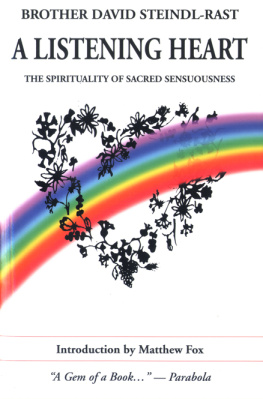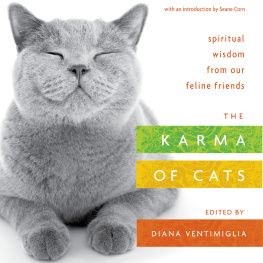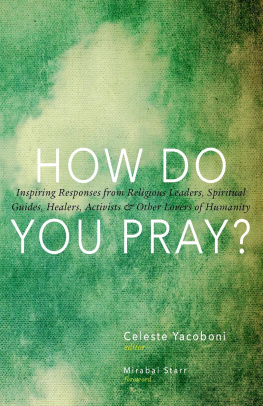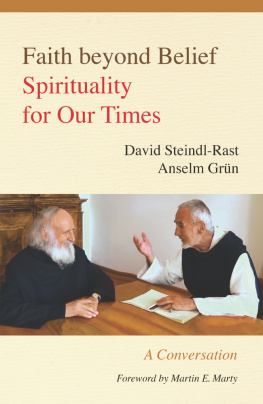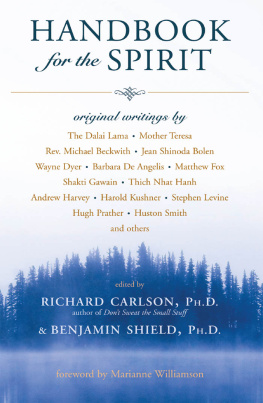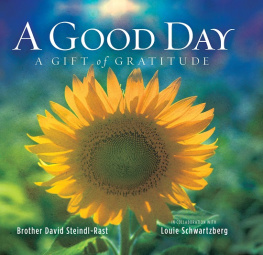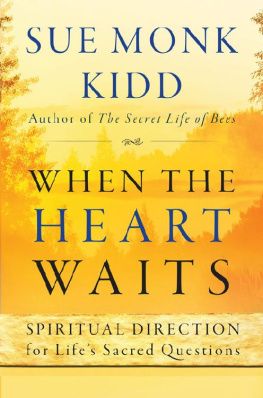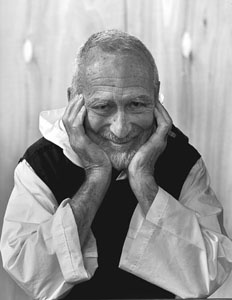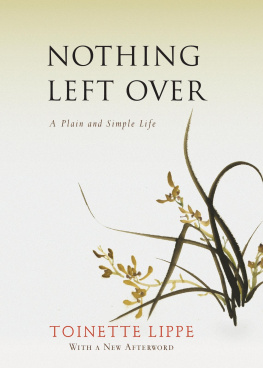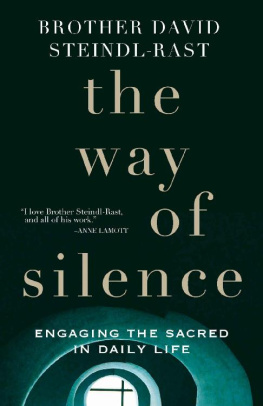
Brother David Steindl-Rast

Newly Revised

A Crossroad Book
The Crossroad Publishing Company
New York
A
LISTENING HEART

May this new version of A Listening Heart be a token of my gratitude for the listening hearts of friends, especially
NANCY L. GRAEFF
and all others who helped with professional skill, advice, support, and constructive criticism.
I am deeply grateful also for the listening hearts of my readers.

Snjezana Bakula, Mel Bricker, Joan Casey, Michael Casey, Lorilott Clark, Brendan Collins, Sandy Conheim, Judy Dunbar, Christine Gunn, Gwendolyn Herder, Kateri Kautai, Paul Kobelski, Paul Lacey, Matthew Laughlin, Chris Lorenc, Laura Martin, Sajid Martin, David Schulz, Michaela Terrio, Daniel Uvanovic, Margaret van Kempen O.S.B.

Brother David Steindl-Rast is an authentic monk. Like the Buddhist monk Thich Nhat Hanh, whom he cites in this book, Brother David is able to communicate simple living and simple seeing to the rest of us who are in the world looking for meaning and spiritual support as we struggle to pay our bills, raise our families, face our trials, fight our ethical battles and just plain live.
What makes an authentic monk? I think clarity of mind and sight, simplicity of life and gratitude in the heart. In short, what Brother David calls a listening heart.
It takes self-knowledge and freedom from projection to render the heart a listening one. The monk listens. All of us do (or ought to). The monk might be called a professional listener. Maybe we all should be professional listeners.
For there is so much that is being said in the universe and in our hearts that deserves silent attention some of it is the music of beauty and awe and wonder; and some of it is the lamentation of grief and anger, sadness and sorrow. All of it deserves our listening. And Brother David in this book gives us ample lessons in how to enrich our listening.
At this time of an emerging millennium (and an ending one), when the planet is being despoiled by so much reckless human encroachment of its natural systems of checks and balances, and in this time when Christianity seeks to simplify itself and to return to the spirit of Jesus and the Christ-awareness that Jesus knew so well, certain monks are being asked to share the fruits of their listening heart with others. Thich Nhat Hanh, the Dalai Lama and Pema Chodron are examples of persons responding to this call from the East; Brother David is a fine example from the West. Indeed, these people are on similar paths. Though their journeys started differently three with the Buddha, Brother David with Christ their paths have crossed. Intersection is happening a lot these days. The young recognize it. Cultural pluralism and religious pluralism and spiritual pluralism are signs of our times. And Brother David is a leader in this work of spiritual ecumenism and of science reconnecting to spirituality and of rescuing the essence of the Christian message, what Meister Eckhart called the kernel, from the historical Jesus and from his monastic tradition and practices.
In this book we readers are the grateful and fortunate recipients of Brother Davids wisdom. Brother David walks his talk and he sings his silence. Like his Benedictine Sister Hildegard of Bingen, whose 900th anniversary we celebrate this year, he seeks wisdom over knowledge and in preference to folly and he makes our hearts greener and wetter and more creative and joyful.
Time and again Brother David returns to the key theme of gratitude in this book. He is so wise to do so. If our species were truly grateful, would we be despoiling the very beauty and health of this planet as we are? Or would we be so often seduced by luxury life-styles or consumer addictions if we had learned what the real graces in life are? (Grace and gratitude come from the very same root word.) With Meister Eckhart, Brother Davids message could be summarized as follows: If the only prayer you say in your whole life is Thank You, that would suffice.
Brother David knows his Benedictine tradition well and knows it was based on a Biblical, original blessing theology more than an original sin ideology. In this book he instructs us in a holy and sensuous asceticism that does not flee the body or the body politic but inspires both. This book breathes spirit and life into persons and community.
When he declares that every sensuous experience is at heart a spiritual one: a divine revelation, Brother David calls us to our senses again. Our holy senses. He calls us to the very basic meaning of mysticism, to enter the mysteries, and he demonstrates how our senses are indeed gateways to Spirit and not obstacles to Spirit as some guilt-producing theologians have suggested they were over the centuries. Brother David redefines asceticism, insisting that an authentically Incarnational Christian theology ought to speak of sensuous asceticism. This represents a giant step forward since during the mechanistic modern era the term asceticism pretty much degenerated into a kind of mechanical way of treating and indeed abusing our senses for the sake of a perceived spiritual purity. Our senses are meant to serve the heart our ears hear, but only a listening heart understands. Yet we are meant to go beyond sensual pleasure to a joy that lasts.
I am grateful for this deep and profound book, as I am sure many other readers will be also. It tells truths of the spiritual life that need telling and it tells them with story and poems and humor a style that deserves our attention. The author speaks not from the lofty pinnacles of a pulpit preacher or an academic savant, but from the inside to the inside, that is from listening heart to listening heart. To get the most from this book one must listen with ones heart.
I hope we are listening young and old alike. For the future of our species and of the planets beauty and health and diversity as we know it depends on what we humans choose to do with our hearts. If we can let go and cleanse our hearts, learning to listen deeply again, then there is hope. To listen with gratitude, and grow in the reverence and wonder that grows from gratitude, and grow in our capacities for not-taking-for-granted. In this sense, Brother David invites all of us to be mystics again and prophets, too, that our joy may flow over into our work in the world. In this way, not only Eastern and Western wisdom, theological and scientific knowledge, but also the monastic and lay worlds may melt together so that all may be one and in this great one-ing we may together recover community and celebration, justicemaking and healing. This would surely be a blessing and return us to a sense of original blessing. A time of true community celebration and gratitude would follow. Reverence for all being would be the result. And still more of creation would join the celebration.
Matthew Fox
Next page
